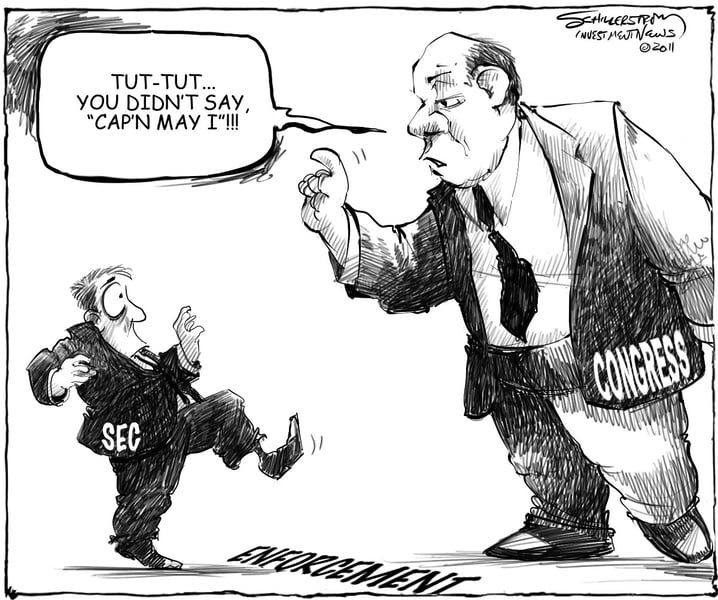The time has come for Congress to cut the purse strings that have long impeded the SEC's ability to do its job
The time has come for Congress to cut the purse strings that have long impeded the SEC's ability to do its job. By doing so, the Securities and Exchange Commission can join the ranks of many other government agencies that use the fees they collect from those they regulate to support their operations, including the Federal Reserve Board and the Federal Deposit Insurance Corp.
The workload imposed on the SEC by the Dodd-Frank Act is reason enough to support self-funding. The enactment of the law requires the commission to promulgate more than 100 rules, create five new offices and produce more than 20 studies and reports. In addition, it has thrust considerable new responsibilities upon the SEC, including oversight of the over-the-counter-derivatives market and hedge fund advisers.
Like other self-funded financial services regulators, the SEC would be required to submit an annual budget to Congress. But Congress would no longer be in the position of appropriating the funds required to meet that budget.
Instead, the SEC would pay for itself through fair transaction and registration fees already endorsed by Congress.
It should not, however, be allowed to pocket the fines and penalties it collects through its enforcement program — thereby eliminating the temptation to demand higher penalties to pay for new copy machines or warm bodies.
Insulating the SEC from the whims and follies of foolish politicians would go a long way toward making sure the agency had the funds it needed to keep pace with market and technological changes.
Anyone who doubts whether the SEC has been chronically underfunded for years should consider this: The SEC was forced to cut its enforcement and examination staff by 10%, and its spending on technology by 50%, between 2004 and 2007.
At the same time, trading volume doubled, the number of investment advisers climbed 50% and the assets they managed jumped 60%, according to statistics cited in a June 11 letter from the Federal Bar Association's securities law committee.
PLAN FOR FUTURE
Self-funding would position the agency to execute long-term commitments to technology. The SEC cannot be expected to plan for long-term technological improvements when its spending on technology is linked directly to a 12-month appropriation cycle.
Finally, self-funding would prevent the SEC from being used as a political football on Capitol Hill.
If it weren't so frightening, the money and power grab going on in Washington over the SEC's budget would be almost laughable.
First, the SEC was deservedly taken to the woodshed for its botched handling of the Bernard Madoff Ponzi scheme investigation.
After that, its authority was significantly expanded under Dodd-Frank.
Then, in an act of absurdity even by Washington standards, the SEC's budget was frozen at fiscal year 2010 levels amid a budget impasse in Congress.
Just recently, Congress passed a budget for fiscal year 2011 that gave the SEC $1.185 billion — up $74 million from 2010.
Now, SEC Chairman Mary Schapiro is spending a good deal of her time — time that would be better spent scrutinizing rule proposals and tracking down criminals — trying to persuade Congress to appropriate $1.407 billion for the SEC in fiscal 2012.
Few would dispute that robust regulation is crucial to the proper functioning of the capital markets.
But vigorous regulation comes at a cost — and the responsibility for meeting that cost must be taken out of the hands of politicians and public opinion polls.







